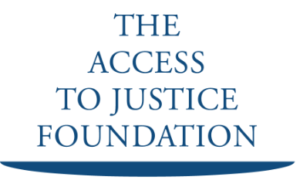The Equality & Human Rights Commission (EHRC), claims the criminal justice system is failing and leaving disabled citizens ‘bewildered’.
Today the EHRC published the full findings of its inquiry into whether the justice system treats disabled people fairly – ‘Inclusive justice: a system designed for all’.
The equality watchdog said the report highlights that the system is not systematically recognising the needs of disabled people, meaning defendants and accused people risk not being able to participate properly in the legal process.
Having recently produced interim findings in response to the coronavirus pandemic, the ECHR said the full report shows the extent to which the criminal justice system is ‘failing those with learning disabilities, autistic spectrum disorders and brain injuries and needs reform in order to ensure a fair trial for all’.
David Isaac, Chair of the Equality and Human Rights Commission, said:
“A non-discriminatory criminal justice system, that everyone can participate in, underpins our society. It stands for democracy, equality and the rule of law.
“It should give us all the chance of a fair trial, no matter who we are. But disabled people often face barriers to understanding their situation and making themselves properly understood to others. This can result in them feeling bewildered by the system and treated unfairly, which puts their right to a fair trial at risk.”
Today’s report also explains that there is an overrepresentation of people with learning disabilities and mental health issues within the system that the Government has failed to document, that those accused aren’t routinely provided with adjustments they need to participate in the justice process, and that too many legal professionals do not have adequate training to appropriately deal with impairments.
Highlighting that increased digitalisation of the system threatens disabled people’s access to justice – as it risks them being even less able to understand what is happening, and communicate, than when they are participating in person – the EHRC stresses the urgency of reform of the system to meet disabled people’s needs, in turn improving it for all court users.
Isaac continued:
“Clearly the system needs a redesign. The UK and Scottish Governments need to make it a priority to understand the needs of disabled people in the system, giving serious consideration to our findings and recommendations, and commit to making our criminal justice systems fair for all.”
Alongside its findings, the report makes five accompanying recommendations to the UK and Scottish Governments and relevant agencies:
- Ensure departments and executive agencies address gaps in the collection, monitoring and analysis of disability data, and ensure there is clear regulatory oversight to monitor their effective participation
- Develop early and effective screening for all defendants and accused people and give consideration to how screening might work for those involved in criminal proceedings where the route does not involve the police and/or custody
- Ensure timely access and sharing of information
- Support the duty to make reasonable adjustments and respect fair trial rights
- Ensure initial professional qualification training for law students includes disability awareness, all relevant codes of conduct and standards are amended to specifically include disability awareness as a professional requirement, and disability awareness is a mandatory element of continuing professional development for those working in criminal law.
For a link to today’s report, an overview of the findings of the EHRC inquiry launched in March 2019, please click here.









